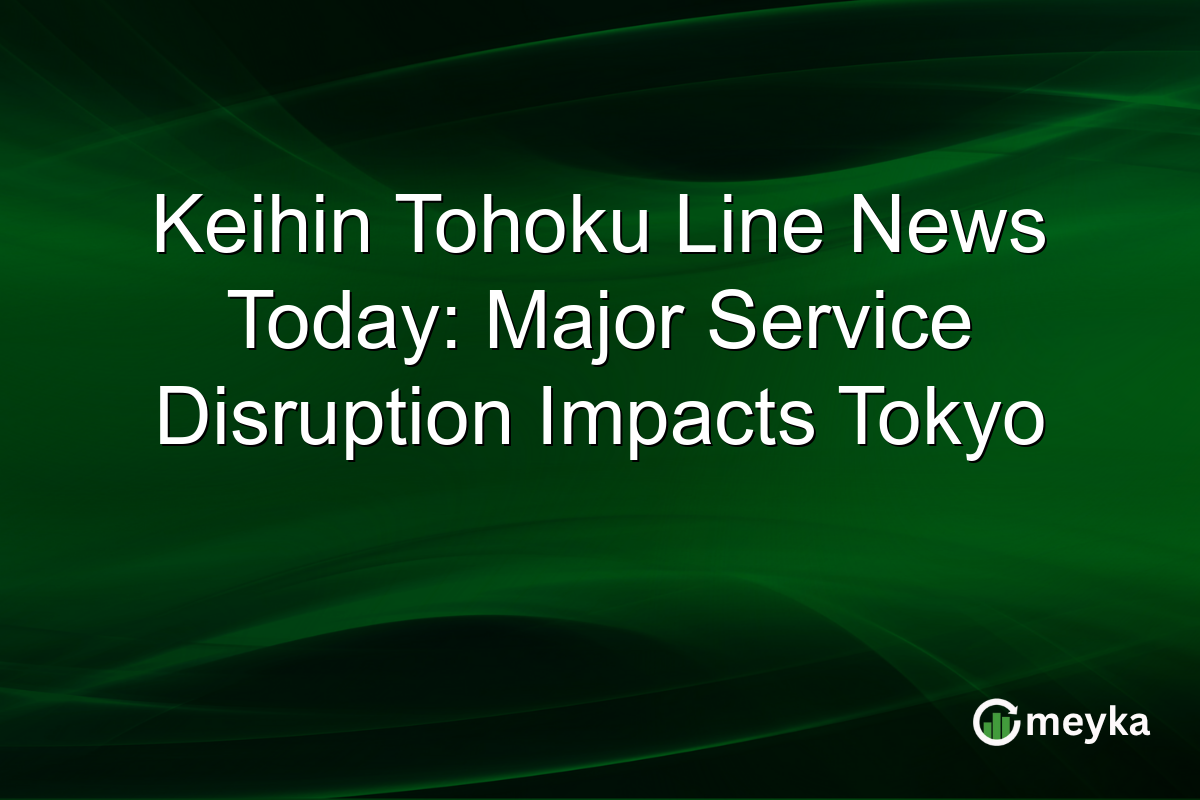Keihin Tohoku Line News Today: Major Service Disruption Impacts Tokyo
Today, Tokyo’s daily hustle faced a major hiccup as the Keihin Tohoku Line experienced a significant service disruption. This unexpected event affected thousands of commuters, causing ripple effects across Tokyo’s busy transport network. With reliance on rail transit so high in the city, this disruption highlights concerns over infrastructure reliability and contingency planning, critical for Japan’s urban mobility framework.
The Impact of the Disruption
The Keihin Tohoku Line disruption, which began during morning rush hour, halted a route crucial to both passengers and businesses. Thousands were left stranded, leading to heavy congestion on alternative lines and impacting the broader Tokyo transport network. Such events underscore the critical role of reliable railway services in urban settings like Tokyo, where daily commutes are pivotal for economic function.
These disruptions can have ripple effects. Other Tokyo transport services felt the strain, with observable increases in traffic on roads and additional delays on interconnected train lines. This not only frustrated commuters but also impacted local businesses reliant on timely deliveries and worker commutes.
Major Delay on Tokyo Railway Network
Investor Reactions and Market Impact
Investors are now closely scrutinizing the listed railway companies for their response to this incident. These companies are facing increased pressure to enhance infrastructure reliability and improve contingency planning. While no immediate stock data points to significant price movement, the focus remains on how these companies will address infrastructure challenges.
Market sentiment often reacts negatively to such disruptions, as operational hitches can affect earnings. Companies involved might need to reassess their risk management strategies to align with investor expectations, particularly in a city with a densely packed and heavily depended-upon rail system like Tokyo.
Tokyo Market Impact
Challenges for Japan’s Urban Mobility
Tokyo relies heavily on its efficient rail network for daily commuting. This disruption highlights ongoing challenges in maintaining a reliable urban mobility system. Japan’s urban planners and transport companies need to innovate, ensuring resilience against unexpected events. Modernizing infrastructure and enhancing real-time response capabilities are crucial steps forward.
Looking ahead, this incident may prompt a closer review of Tokyo’s transport infrastructure. Companies might invest in advanced technologies and analytics, possibly involving platforms like Meyka, to forecast and manage disruptions better. Such developments could transform urban mobility, aligning better with future demands.
Tokyo Commuters Face Chaos
Final Thoughts
The Keihin Tohoku Line disruption serves as a stark reminder of the complexities involved in maintaining urban transit systems in mega-cities like Tokyo. Both public reliance and economic function heavily depend on these networks operating without hitches. As local businesses experience immediate disruption, the broader impact lies in investor scrutiny and the call for improved infrastructure resilience.
For Japan, enhancing railway reliability will be a key focus as the nation continues to lead in urban mobility solutions. Utilizing data-driven platforms like Meyka could offer insights into preventing future disruptions and creating a more robust response framework.
The lessons from today’s events stress the need for strategic planning and technological integration to fortify Japan’s transport systems, ensuring continued efficiency and reliability for all commuters.
FAQs
The exact cause of the Keihin Tohoku Line disruption hasn’t been detailed yet, but such events often result from technical faults, signaling issues, or unexpected maintenance needs.
The disruption led to increased congestion on other lines and roads, impacting thousands of commuters and highlighting the need for robust contingency strategies in Tokyo’s transport system.
Investors might scrutinize railway companies’ risk management and infrastructure resilience plans. Disruptions can affect earnings, leading to increased pressure for improvements.
Disclaimer:
This is for information only, not financial advice. Always do your research.






